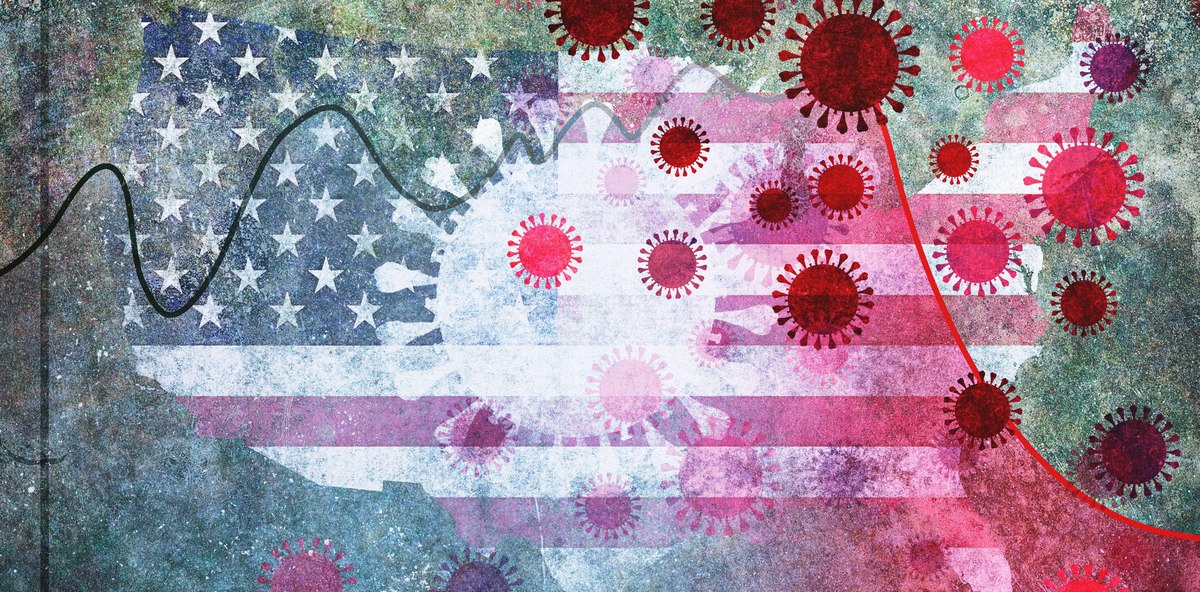The coronavirus pandemic continues to make its way through most of America, except for one region. More than 40 percent of the public in the Midwest, the South and the West see COVID-19 cases rising in their communities. But in the latest Economist/YouGov Poll, those in the Northeast are as likely to see cases decreasing as increasing.
On many measures of concern about the virus, Democrats and Republicans frequently disagree. For example, Democrats are 30 points more likely than Republicans to worry personally about contracting the virus. A third of Republicans in every region say local cases are rising, while in the Midwest and West more than half of Democrats see them increasing. The pattern is different in the Northeast: 23 percent of Democrats believe the number of cases in their community is rising, while 31 percent of Republicans say they are going up.
The Northeast was one of the earliest US coronavirus hotspots. One in five residents in the Northeast (20%) have a family member or close friend who has died from the virus — a higher percentage than elsewhere in the country.
Americans aren’t sure there will be an end to the pandemic anytime soon. What they are willing to do about it in the meantime includes keeping gathering places closed, wearing a mask, and providing a vaccine. Two-thirds of the public would keep bars shut, 56 percent reject indoor dining, and by 53 percent to 40 percent, the public would also keep churches closed.
Nearly nine in ten adults have worn face masks in public, with the highest numbers reported in the Northeast (90%) and the West (91%). By more than three to one, the public supports requiring them in public places. That includes majorities of Democrats (90%) and Republicans (55%). There is more support in the Northeast and West than in other regions, with one in four in the Midwest and South opposing a mandatory face mask policy. More than a third of those who live in rural areas object to a mandatory mask policy (and one in five rural residents have never worn one).
Two-thirds of the country believe it is not safe to re-open fully without having a vaccine available to the public. Less than a third think there will be one available by the end of this year. Republicans are the most hopeful, nearly half of them expect a vaccine available by the end of 2020.
But even if a vaccine is ready soon, 63% say they are concerned about the implication of the fast-track process, but that concern has dropped 10 points in the last week. That may be part of the reason for the small increase this week in the share of adults who now say they will get vaccinated. More than two in five (45%) will, up five points in the last week. The largest increases are in the Northeast and in the South.
See the full toplines and tables results from this week’s Economist/YouGov poll
Methodology: This Economist survey was conducted by YouGov using a nationally representative sample of 1,500 US registered voters interviewed online between August 9 – 11, 2020. The sample was weighted according to gender, age, race, and education based on the American Community Survey, conducted by the US Bureau of the Census, as well as 2016 Presidential vote, registration status, geographic region, and news interest. Respondents were selected from YouGov’s opt-in panel to be representative of all US citizens. The margin of error is approximately 3.5% for the overall sample.
Image: Getty









